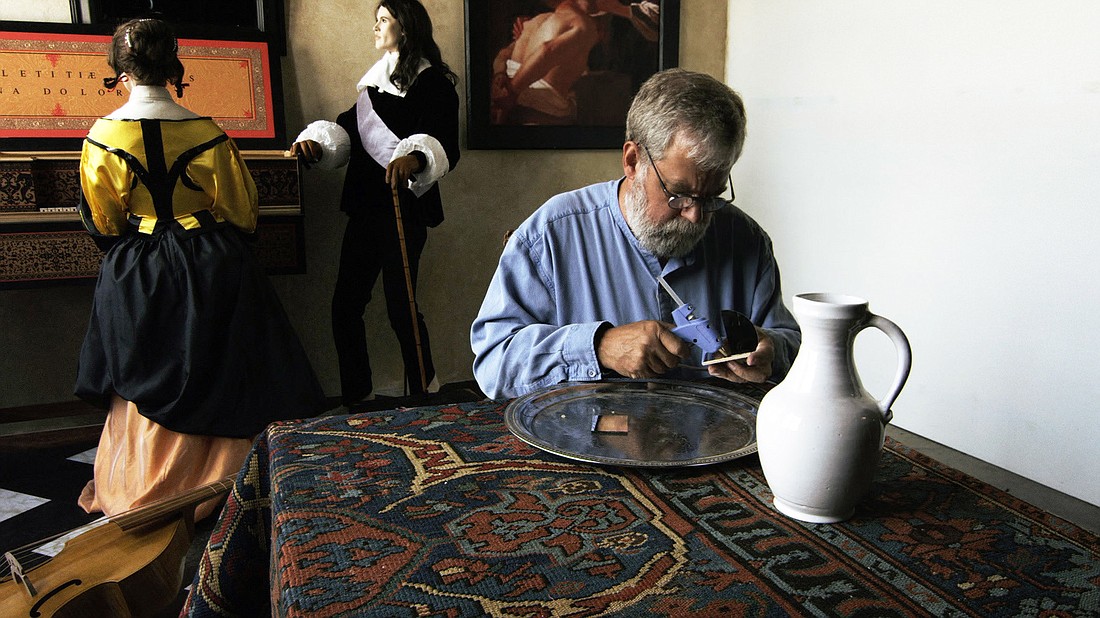- April 25, 2024
-
-
Loading

Loading

Tim Jenison, a renowned technologist, spends five years testing a theory of how painter Johannes Vermeer created his masterpieces in the documentary "Tim's Vermeer." It's an obsessive, sometimes tedious and completely compelling piece of filmmaking.
The esteemed Dutch artist was known for his brilliant use of light and shadow. Jenison believes that Vermeer's paintings seem almost photographic in quality. But seeing as he created his work in the 17th century, 150 years prior to the invention of the camera, how could this be?
Jenison became interested in "Vermeer's Camera," a book written by professor Philip Steadman in 2001. It's premise was that Vermeer traced images via a lens onto a canvas ("camera obscura"). Jenison takes it upon himself to test the presumption that Vermeer may have been using technology to paint his masterpieces.
In his quest to replicate a Vermeer painting, Jenison leaves no stone unturned. He builds a copy of the artist's studio (in a Texas warehouse) to reconstruct the room in which he painted "The Music Lesson." Painstaking attention to detail is overwhelming, down to using pigments available only during the 1600s. He even erects a tower outside his window to mimic the church steeple outside of Vermeer's studio. Because, bottom line, it's all about the lighting.
To his advantage, Jenison is an old friend of Penn Jillette (of the magic team Penn & Teller), and Raymond Teller opts to direct. Jillette conducts onscreen interviews with Martin Mull, artist David Hockney and Steadman, which provide the vast credibility and profound interest generated in the film. And Conrad Pope's haunting and vivacious score is the icing on the cake in this beautiful masterpiece.
"Tim's Vermeer" is part detective story, part history lesson and just plain enlightening. Jenison, who has never painted before, comments, "This project is a lot like watching paint dry," as we're watching his painting dry. His wit and openness are what make this film so watchable. We feel his pain, frustration and triumphs at the exact moment he does, and it's fun.
"Tim's Vermeer" asks the questions: Can art and technology meet? Was Vermeer cheating? Does verisimilitude play any part in how we perceive art? After all is said and done, I think Jenison's reply would be, "Who cares?"